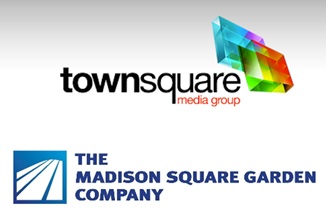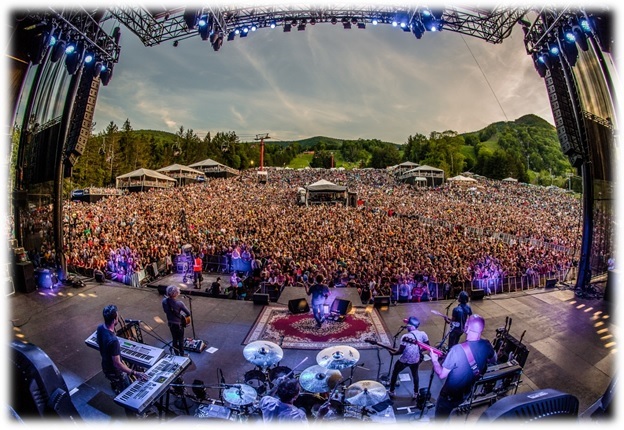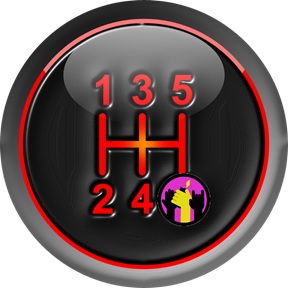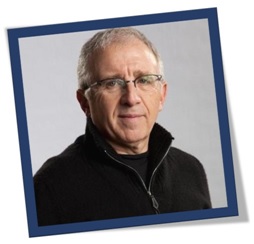
We often talk about partnerships in this blog because the marriage of companies is becoming a more common occurrence than any other time in modern-day radio. It used to be that radio companies simply bought one another, but today, we are more likely to see broadcasters look for different kinds of fit. This includes recent examples like E.W. Scripps buying Midroll and Stitcher, and Hubbard investing in Podcast One.
These recent partnerships represent the ability for broadcasters to enter new arenas and develop new verticals. In this way, they are going well beyond transmitter and tower boundary lines to forge new business opportunities that enable them to become full-blown media companies.
 But last week’s announcement that the Madison Square Garden Company is acquiring a 12% equity stake in Townsquare has even deeper implications – not just for these two companies, but for the entire radio business.
But last week’s announcement that the Madison Square Garden Company is acquiring a 12% equity stake in Townsquare has even deeper implications – not just for these two companies, but for the entire radio business.
Here are some thoughts about why this alliance should have other radio CEOs thinking long and hard about why the MSG/TSQ deal makes sense.
1. There’s money in small ball.
MSG is a company that generally produces mega-events. But Townsquare’s assets are focused on medium and small market radio stations. For MSG, this investment represents an expansion of its reach into smaller markets. David O’Connor, president/CEO of MSG, noted there’s a saturation in big-scale live concerts, whereas Townsquare’s small town festival approach opens up financial opportunities.
2. There’s synergy.
Even though MSG and Townsquare are very different companies, they each have considerable expertise in producing live events and putting butts in seats (or on lawns). Between block booking artists and using MSG venues for Townsquare events, there are common assets in play. The deal is also an open door that tap into the cross-promotional opportunity offered by Townsquare’s radio properties and their marketing assets.
3. They’re on the same page.
Mergers and partnerships usually work best when the two players share similar values. O’Connor noted, “(MSG’s) investment in (Townsquare) is a shared belief in music, live events, and creating community.” That makes partnership logistics so much easier when the two parties are in it for the right reasons.

4. It validates the Townsquare model.
As we’ve noted in past blog posts, Townsquare’s percentage of “other” revenue (concerts, festivals, digital) is in the 40% neighborhood, light years ahead of other broadcast radio companies. This investment by MSG proves the point that Townsquare’s focus on experiences – festivals, events, and the people who run them – has paid off handsomely, especially in smaller markets where there’s simply less to do and also less competition for the consumer’s dollar. Now Townsquare gets to share resources with a major league concert and events player.
 5. Concerts and events have never been more important.
5. Concerts and events have never been more important.
Consumers value unique experiences, and live performance is one that creates memories, while generating passion, excitement and of course, revenue, from an increasing number of sources. As artists grapple with the reality that selling their music is a rapidly diminishing resource, the shift to concerts in pursuit of both dollars and branding has never been more apparent. And concerts are a lot more fun than sharing playlists online, or voting songs up and down on an app.
6. It’s an affirmation of the power of radio.
All along, Townsquare has leveraged the success of its concert and festival business on the ability of its stations to populate venues, arenas, auditoriums, and lawns. Their financial results, combined with the MSG seal of approval, is a tremendous success story for radio – a medium that is unfairly and unwisely discounted by too many advertisers these days.
This deal also supports the notion that radio is a powerful megaphone. When leveraged properly, it puts butts in seats, generating serious revenue with radio as the engine. This idea that radio is a big-time marketing tool has never been a more important one in an environment where there’s doubt about its efficacy. Having MSG proves the strategy is a good one.
 7. Irving Azoff.
7. Irving Azoff.
He’s a legend in the business, a deal-maker, and an impresario. Not surprisingly, he’s the guy who brokered the deal between these two companies. Anybody who has ever encountered Irving, whether it’s his management of performers like the Eagles or Christina Aguilera, or during his days running Ticketmaster or Live Nation, knows how he rolls. He’s an amazing resource, and the best in the business when it comes to understanding the public taste and how to make a scalable profit from it.
The other piece of the Irving Azoff pie that shouldn’t be overlooked is his opinion of radio. Right now, Irving is embroiled in a highly public dispute with YouTube over artist compensation and control of content. In an open letter this May to YouTube linked here from Recode, Irving made his case.
But the paragraph that caught my attention has to do with the comparison between YouTube and broadcast radio, and the artist relationship:
“If you want YouTube to be compared to terrestrial radio, then you have to be a good partner to artists like radio is. Radio works with artists so they can present music to their fans in the way they intended. Radio does not provide unlimited, on-demand access to music which can be shared. Radio doesn’t leak music, and it doesn’t make unfinished or poor-quality live recordings available. It’s about creative control.”
Spoken like a guy who respects the radio business a lot – enough to advise his client MSG to do this deal with Townsquare. In the same way that many watch Warren Buffett’s acquisitions, paying attention to Irving Azoff’s moves is just as telling.
Radio has the potential to be a growth industry – again.
- Why “Dance With Those Who Brung You” Should Be Radio’s Operating Philosophy In 2025 - April 29, 2025
- The Exponential Value of Nurturing Radio Superfans - April 28, 2025
- What To Do If Your Radio Station Goes Through A Midlife Crisis - April 25, 2025




Outstanding & True. It’s all about the show and strategic connections! Clark http://www.broadcastideas.com
Many thanks, Clark.
Hi FRED,
There’s no doubting the value waiting to be unlocked inside those big “cume” reaches Nielsen keeps espousing for Radio.
TSL erosion may be a reality as abundance of listener choice proliferates, but a smart “radio” company will build alliances that capitalise on that. Capturing new listener relationship opportunities and the brand-revenue benefits that go with it quickly pivots the thinking and the medium way beyond the “tower” mentality.
Hats off to HUBBARD, TOWNSQUARE, ALPHA, BEASLEY, and those out there that are innovatively blazing the path…
Lee, good summation. It takes creative energy and innovation to win in this environment. Thanks!